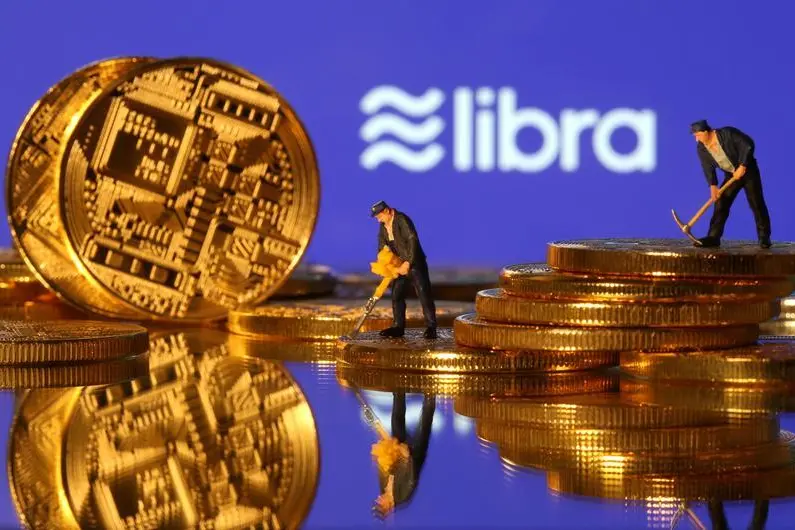PHOTO
BRUSSELS - European Union finance ministers will tell their counterparts at a G20 meeting in mid-October that a global regulatory response is needed to "stablecoins" such as Facebook's Libra, an EU document said.
The ministers, who will formally approve the text next week, are also calling on G20 partners to reform their taxation of digital companies in 2020 and to urgently address trade tensions which "put global growth at risk", the terms-of-reference document said.
"Latest developments with regard to stablecoins and the multi-faceted regulatory, oversight and supervisory challenges these represent, call for seamless cooperation and concerted response at global level," the EU will tell G20 partners at a meeting of finance ministers and central bankers in Washington on Oct. 17-18.
Facebook's planned Libra is the most well-known of the stablecoins - cryptocurrencies backed by assets such as traditional money deposits, short-term government securities or gold.
EU heavyweights France and Germany have criticized Facebook's project, saying it posed risks to EU states' sovereignty.
The European Central Bank has also called for strict oversight of Libra and will present a report on it at the G20 meeting, EU officials said.
At the meeting, EU ministers will also reiterate their warnings that trade tensions are disrupting the global economy.
"Current trade tensions are a source of great concern and put global growth at risk," the document said. It was prepared before the latest escalation in the trade tensions between the EU and the United States that has paved the way for new U.S. tariffs on EU goods in a dispute over EU aircraft subsidies.
Officials said the text would not be changed, as it already called for urgent action to resolve trade disputes.
EU ministers will also reiterate the need for a global deal to overhaul the taxation of digital firms in 2020, the document said. The EU Commission, the bloc's executive arm, has said the EU would move alone if no global agreement was reached by the set deadline.
The 28-nation bloc will urge stronger measures against tax avoidance at the global level, including mandatory disclosure rules for tax intermediaries, such as banks and accountants, and sanctions for tax havens.
The EU is set to update its blacklist of tax havens next week, shrinking it to nine jurisdictions with the planned removal of the United Arab Emirates and the Marshall Islands.
(Reporting by Francesco Guarascio @fraguarascio; Editing by Hugh Lawson and Alex Richardson) ((Francesco.Guarascio@thomsonreuters.com; @fraguarascio; +32 2 287 68 17;))





















